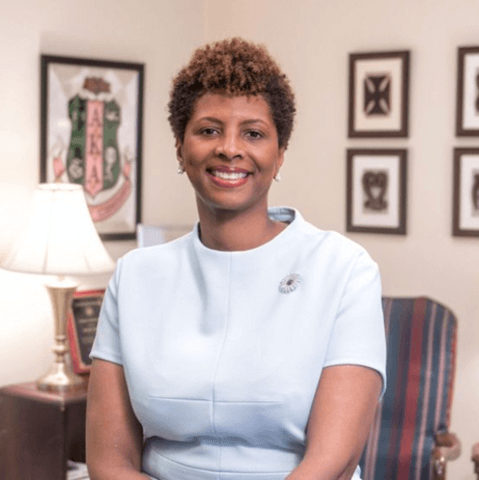Dean's Corner
As we stand on the cusp of the exciting and transformative milestone of achieving Research I (R1) status again, I want to this special point of privilege to thank our graduate faculty. The Research I designation, bestowed by the Carnegie Classification of Institutions of Higher Education, is a prestigious recognition of our institution’s growing capacity and commitment to conducting high-impact research that addresses some of the most pressing challenges of our time.
Achieving R1 status is not just a badge of honor for our university, but a signal of the future we are creating together — one where knowledge production, interdisciplinary collaboration, and community engagement get are at the heart of everything we do.
What Does Research I Status Mean?
At its core, Research I status represents a level of research activity that places us among the most research intensive institutions in the nation. It reflects the depth, breadth, and productivity of our research efforts, spanning all disciplines — from the sciences and engineering to the humanities, social sciences, and beyond. This designation is determined by a rigorous set of criteria, including the number of doctoral degrees awarded, research expenditures, and the volume of externally funded research.
Achieving R1 status is not an overnight accomplishment; it is the result of years of strategic investment, collaborative partnerships, and a commitment to fostering an environment where research excellence thrives. Our faculty have worked tirelessly to help us reach this point, especially in relation to doctoral conferrals. Because we have done all we have done with far fewer resources that most R2 schools who move to R1, this achievement is a testament to our faculty’s hard work, the intellectual curiosity they inspire in our students, and, most importantly to me, the drive to make a real-world impact in the communities that give us their best—our students.
The Impact on Research
For our researchers, R1 status opens up a new world of opportunities. With this new designation, we will attract more competitive federal, state, and private sector research funding, all of which I hope we use to solve problems that adversely impact communities of color. We want to enhance the resources available to our faculty, our scholars, and postdoctoral researchers. We’ve already begun to do some of the work to match our research aspirations with our current reality.
In the coming years, we anticipate seeing even more collaboration across fields as faculty from diverse departments come together to solve complex global problems — whether addressing climate change, advancing healthcare, developing new technologies, or improving social equity. I look forward to the day when we can consistently attract and retain top-tier researchers and scholars from around the world, adding to the intellectual vibrancy of our campus and doing so with an efficiency and culture of excellence we all deserve.
The Impact on Communities
While the research conducted here is vital to advancing knowledge, it also has a direct and lasting impact on our local communities especially. One of the most exciting aspects of achieving R1 status is the opportunity to scale our efforts to make a tangible difference in the lives of those around us. By leveraging our expanded research capacity, we can address issues that matter most to our communities. In particular, R1 status will enable us to better align our research with the needs of underserved populations, ensuring that our work has a broader, more direct impact. Our students will have the chance to engage in high-level research that directly benefits the communities they call home.
Looking Ahead
To be clear, R1 status is not an endpoint; it is a launching pad for even greater achievement. Whether through new research centers, public forums, or collaborative partnerships, we are eager to harness the momentum of R1 status to advance research that truly matters.
This is an exciting time for Howard, our researchers, and our communities. Together, we will continue to push the boundaries of knowledge and solve real-world problems.
With gratitude and excitement for what lies ahead,
Dana A. Williams, PhD | Graduate Dean

